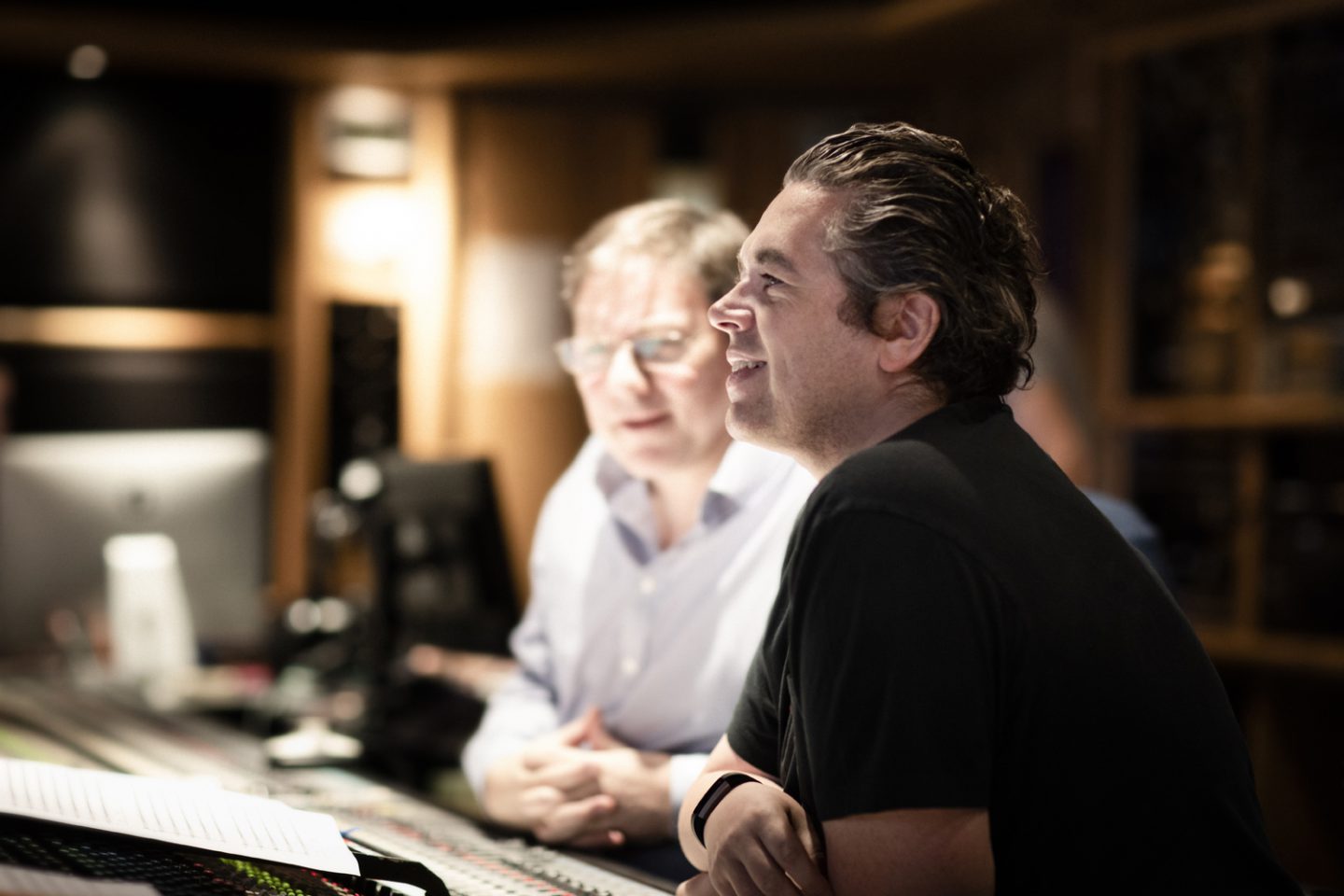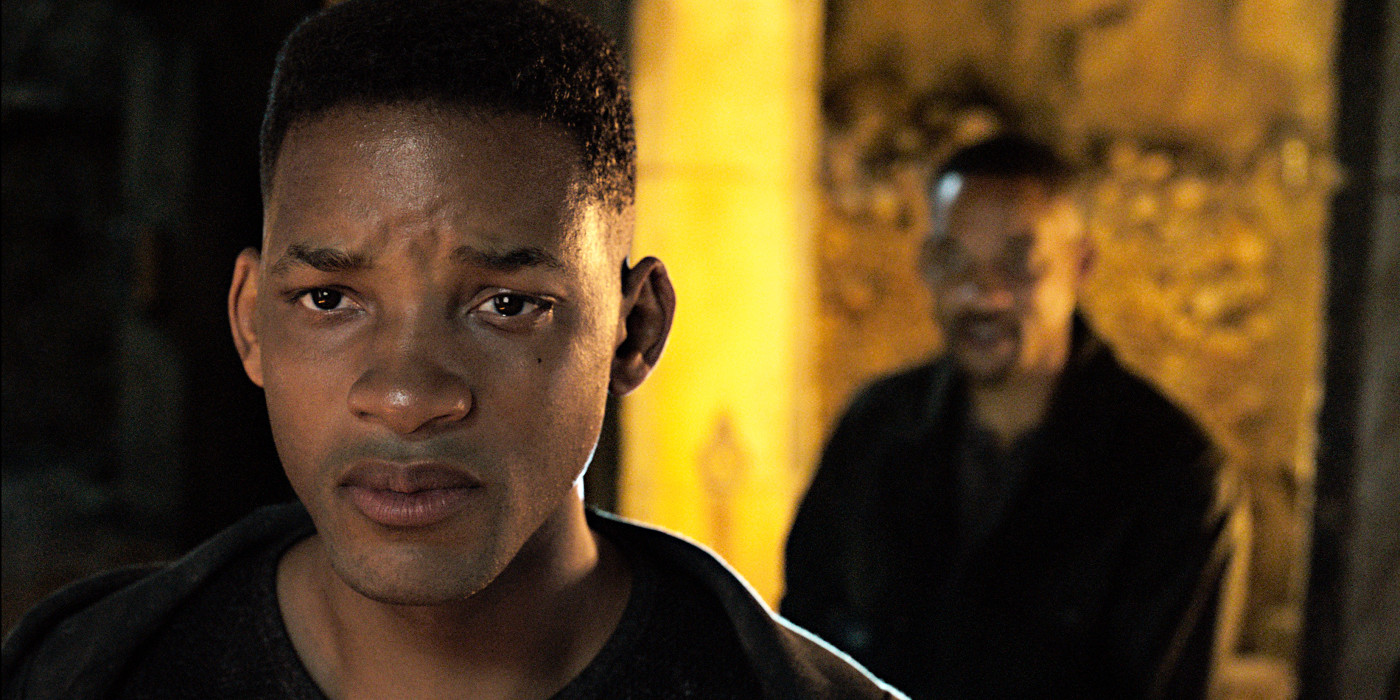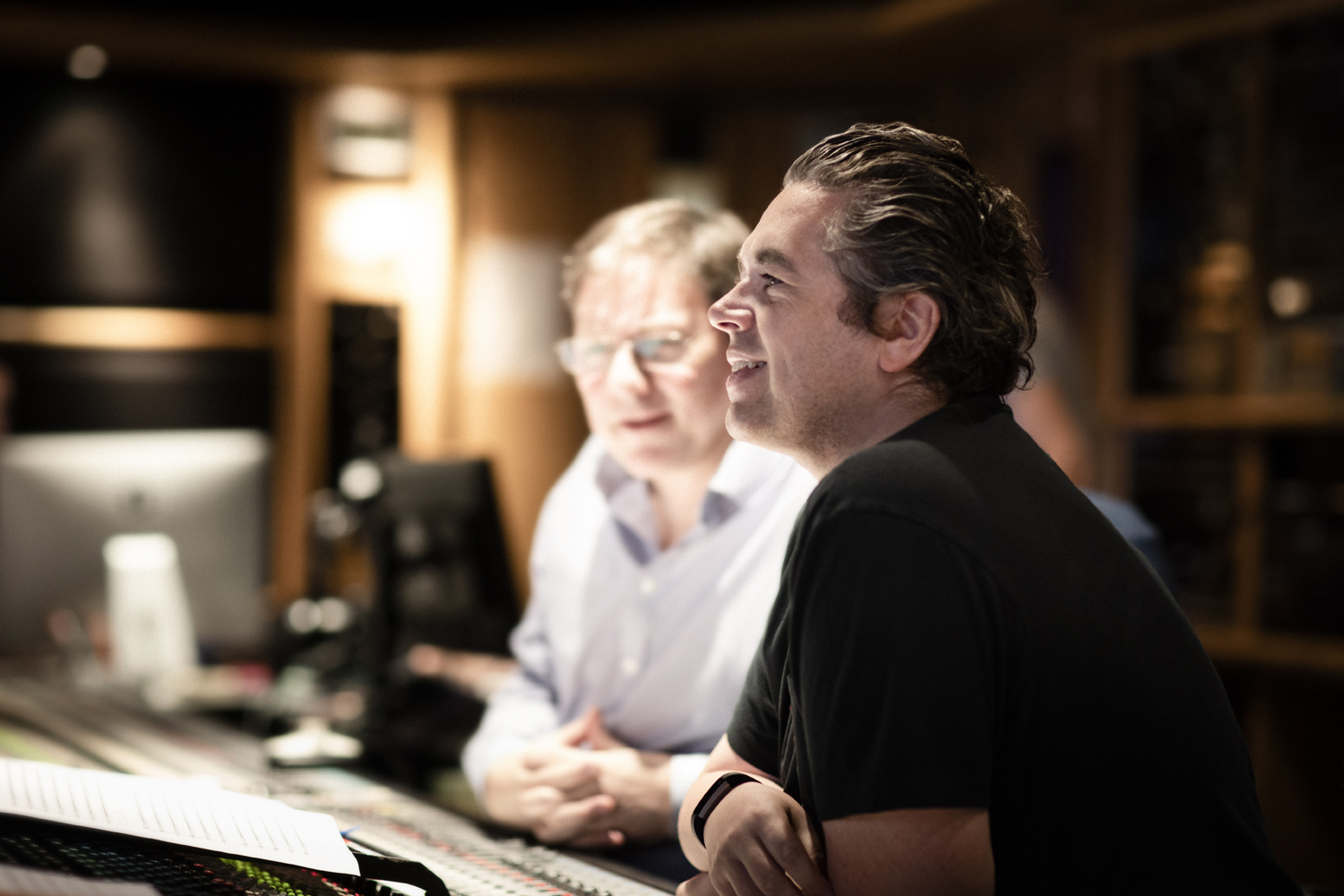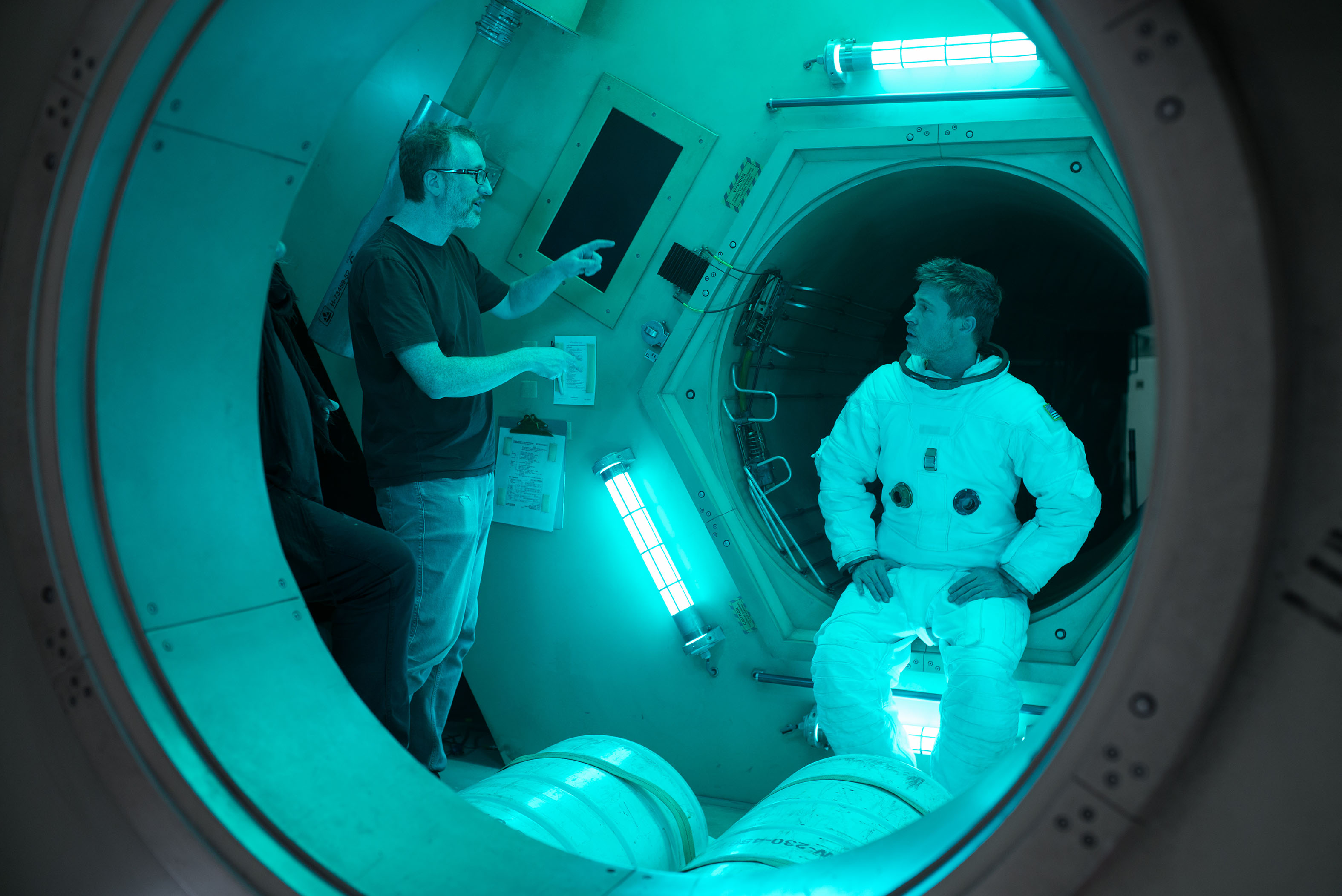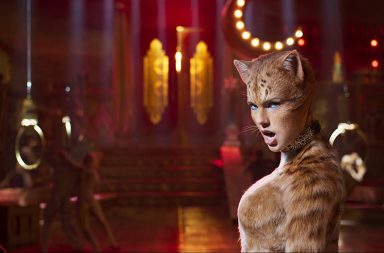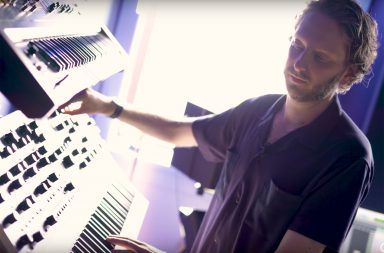Among the many talents who have paced the studios of Hans Zimmer’s Remote Control Productions, Lorne Balfe has quickly become one of the busiest in the industry up to this day. Splitting most of his time between working on Hollywood blockbusters and British TV series—when he is not busy working on a video game, a documentary or an independent film—the Grammy-winning Scottish composer has truly made a name for himself in the early 2010s thanks to his acclaimed scores for Assassin’s Creed: Revelations and Assassin’s Creed III, two of the best-known games in the best-selling franchise, as well as for Quantic Dream’s groundbreaking game Beyond: Two Souls.
Lorne Balfe is, to say the least, extremely passionate about his work. When we called him, a few days before the release of Max Richter and his score for James Gray’s latest sci-fi film Ad Astra, he just got sick—just before we started our interview, he asked, jokingly, to ‘not include the coughing’ in the transcript. But that did not stop him from talking very thoroughly about his craft and his most recent projects, Ad Astra and Ang Lee’s sci-fi/action film Gemini Man. On November 3rd, HBO’s new fantasy series His Dark Materials, starring James McAvoy, Ruth Wilson and Lin-Manuel Miranda and featuring an original score by Balfe, will premiere. All three projects are very different in genre, tone and, obviously, musically too, allowing the composer to further display his talent and versatility.
Score It Magazine: How were you brought onto Gemini Man?
Lorne Balfe: I’ve been working with Jerry Bruckheimer on his last two movies, as well as with David Ellison, who’s the CEO of Skydance Productions, whom I’ve known since Terminator Genisys. They gracefully introduced me to Ang, we got on, and that’s how I came onto the project.
Originally, Marco Beltrami was hired to score Gemini Man. Did you meet him? Did you get the chance to hear any of the cues he’d have possibly written already?
I haven’t heard anything from him and I never had the chance to meet him, so I actually don’t know if he already started to write anything for the film.
How did you tackle the scoring process for Gemini Man?
The first thing I did actually, which was the most important to me, was to make sure that I toned both characters’ stories—Will and Will Jr. I wanted them to have their own themes and for those themes to be able to work together. The first time Ang came to my studio, I was watching an amazing cellist, Tina Guo, who plays the electric cello. She’s the sound of Wonder Woman. So we created a theme for both Wills, that was the way I started. Ironically, the sound I made for Will Jr. is that of an organic cello… In other words, it had more heart.
I must say that the last thing I expected to see on a cinema screen in 2019 was a Jerry Bruckheimer-produced film starring a young Will Smith. But even besides that, there’s a very strong 90s vibe to the film, to which the score contributes heavily…
(Laughs) I feel bad because that wasn’t what I wanted! Musically, we were conscious of not trying to make the music sound like the 90s. My inspiration came from classic films like North By Northwest, and I tried to do something in that golden-age-of-mystery fashion.
And Jerry, you know, he is one of the reasons I do what I do. When I was younger, watching Michael Bay films, or things like Con Air, Crimson Tide, hearing the music by Hans Zimmer… Jerry may not be able to play the piano but he loves music, and he sees how important it is to the film and for the audience. He’s passionate about it. He would be in the studio every day, he’s very supportive. Anyone else would say the same about him. Melodies are very important to him, and the use of them help the film get constructed.
That was my point. Action films in the 1990s borrowed a lot from the classics like Hitchcock or the early James Bond films, just like the scores did borrow, in the harmonic constructions or in the use of melodies, from Bernard Herrmann or John Barry…
It’s an interestingly weird time at the moment: you see people online who talk about how they hate film scores with texture, who find it boring. But a lot of people are not interested in melodies. What happens sometimes is that producers and directors feel that melodies are distracting, and I’ve done recording sessions where I recorded melodies separately from the orchestra in case it would have been removed. But I still believe that melody is the best way to instantly tell somebody a story. To me, it’s not something from twenty years ago. There are trends, of course, but if you’re a good filmmaker, you don’t care about the trends.
You are a man of constructive, fertile collaborations. Do you find yourself more at ease when you’re composing with someone or when you get to do all the writing and the whole composing process on your own?
I come from a background of studio music, and that kind of experience has always been a collaborative approach. I believe that a solitude lifestyle isn’t necessarily the best choice. Working with musicians is great, you keep learning things. And if you don’t, then quit. I feel very lucky to learn how to do something and how not to do something with musicians. Not all is about writing good tunes, that’s just the 60%. Maybe people think the rest is solitude, but it’s not: working with a team is important. There’s a lot of people who work around you, so it’s always a team effort. People don’t necessarily admit that, but you have to be able to collaborate, even if it’s only with your director. I always love working with a composer or a musician.
Which naturally leads us to Ad Astra, for which you wrote the additional score. Did you and Max Richter, the film’s main composer, work together or draw any inspiration from each other’s compositions?
No, we worked separately, but I think it perfectly matches the genius of James [Gray]. We’re always second-guessing these things, but our inspiration came from the movie, which was beyond imagination. A film like that, I could never do, I’d never have that focus and concentration. There are amazing people who write great scripts, great books. I think it’s astonishing. My inspiration comes from what I’m watching and from the backstory, as opposed to, say, a symphony, which is creating inspiration from scratch. I experiment a lot of things, I try to manipulate organic textures…
In Ad Astra, the score is motivated by feelings and emotions—unlike Gemini Man, in which it exists through the storyline. In a film like Ad Astra, where the dialogue is almost superfluous, how big is the challenge of unraveling all the themes that the film tackles?
There’s something interesting about the language here. When you watch an opera, you don’t understand what they say but you understand the story. James Gray and I talked about the tone of the melodies and then tried to simplify it to make it more immediate. With Gemini Man, on the other hand, I made melodies that you would hum, sing and relate to instantly. But these are two very different projects, and every project is different. His Dark Materials, for example, is very thematic: every character is thematically constructed. That’s what makes it interesting, what we do.
Fancy some music from His Dark Materials ? Tune in to BBC1 on Sunday and HBO on Monday . @daemonsanddust @darkmaterials @HBO @Lornebalfe @BadWolf_TV @Lornebalfe pic.twitter.com/EypSC1ACym
— Lorne Balfe (@Lornebalfe) 30 octobre 2019
A single has been released from the Ad Astra score, Prayer*, in which, at the very end, the main aerial cue is interrupted by a very short and very melancholic guitar part that sounds like wistful Western music. What does it tell?
I’m a father now and I related to that story. I’m a son and I can relate. I think that piece was about our roles and purposes in life. Originally, it wasn’t like that so I changed it, but it’s about solving the contrast of these paths musically, the contrast between Brad Pitt and his father.
Do you get a lot of directions from the directors when you work on projects as complex as these two?
Directions are always like, ‘How can you add more texture to the scene?’ In Gemini Man, the hardest thing was the scene where Will Jr., Will and Clive [Owen] discuss their relationship. I think I’ve written it fifteen times, in front of the characters, not only to hear but also to feel them. You have to collaborate to figure out what people think. For that, Michael Bay is an amazing director, because when he hears music he doesn’t like, you can figure out why it doesn’t work, and you get to understand a lot from what [directors] want. Ang would sit in my studio every day. James Gray as well. You start learning personal taste.
You have explored all medias—film, video games, TV, commercials—and almost all genres…
I don’t do horror… But I watch horror all the time!
Do you ever feel stuck with something, musically?
All the time! I feel frustrated because I lack a solid musical training. But on the other hand, I hope that helps me have my own voice. There’s always frustration when you think you’re on the right path and it doesn’t work, but that’s something you need, or else you feel complacent. You need to be pushed. If it’s always easy for you, you should change career. Barriers need to be constantly pushed.
Why didn’t you try to push the barrier and score horror, then? Is it because nobody ever asked you to do it?
No, actually, I’ve been asked many times to score a horror film, but I just wouldn’t know what to do! When I watch those films, and I hear a score from Mica Levi or Joseph Bishara, I don’t know where it comes from! The Newton Brothers, I love what they do. Then there are films like Paranormal Activity, which has no music, but it works, I mean, you’re scared! Maybe I wouldn’t know how to do it because I need to find the right project. I’m thinking about what Hans [Zimmer] did with Hannibal. Turning it into a love story, it’s beautiful.
Hans’s compositions for Hannibal have less to do with the proper language of film scoring than with the pure gracefulness classical music. It scares you because of how it’s used, not in what it sounds like.
And it’s so passionate, themes of love and death coming together… It’s a clever twist on a dark, scary story.
Do you sometimes miss doing big scores for video games?
Well, no, because I’m working on one at the moment, that’s coming out in two years. It’s a different way of working. If you’re lucky, with video games, you start when they start, so it takes two or three years until the game release. My last game was FIFA 19, last year, which I did with Hans, so, you see, I’m still doing it!
Having two or three years to compose allows you more time to rewrite cues, make changes… Does having more time allow you to get closer to perfection?
Perfection doesn’t exist. No matter how long you have, you would definitely change things. The thing is, with TV and film, we have a deadline. The other thing is, when you’re on a video game for two or three years, you find yourself with long periods of time with nothing to do about it, so there’s no reason for you to write anything. So, as long as you have a plan and a concept, time is not a restraint.
One last question about Gemini Man: if you were to meet your younger self, is there any advice you would give him?
I would put personal things aside, that’s a far more long conversation. But musically, I wouldn’t change a thing about my career. I believe that every obstacle is here for a reason. I have been to several music conservatoires, and maybe I was frustrated not having learned what I should have learned. But like I said, I wouldn’t change a thing, it makes me right the way I write […] You know, I’ve been thinking what would I do if I didn’t met Hans, I mean, my father was a songwriter and a musician, but without that, what would I do ? It’s a difficult path, life.
Interview prepared, conducted and transcribed by Valentin Maniglia.
Edited by Marine Wong Kwok Chuen.
